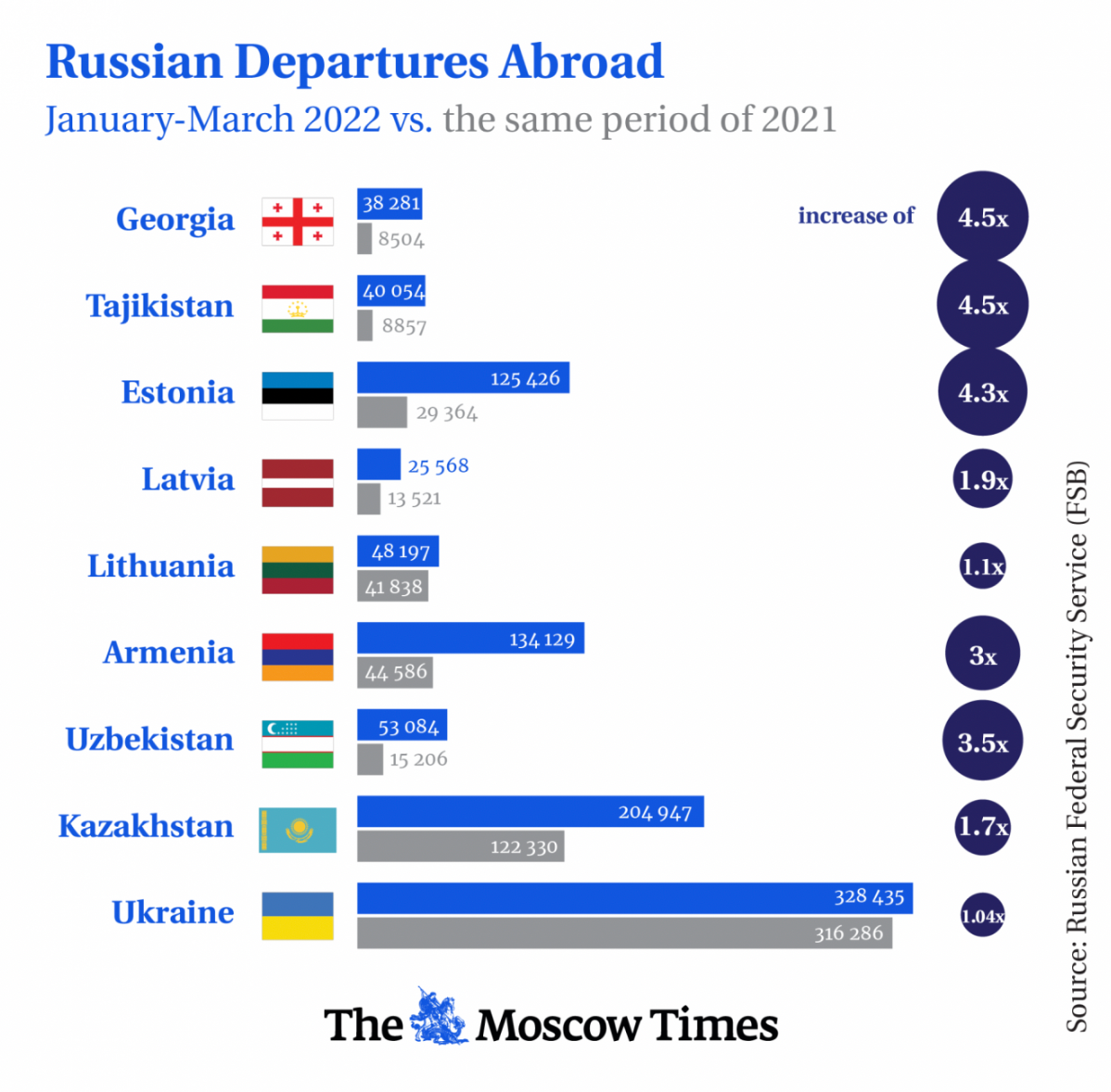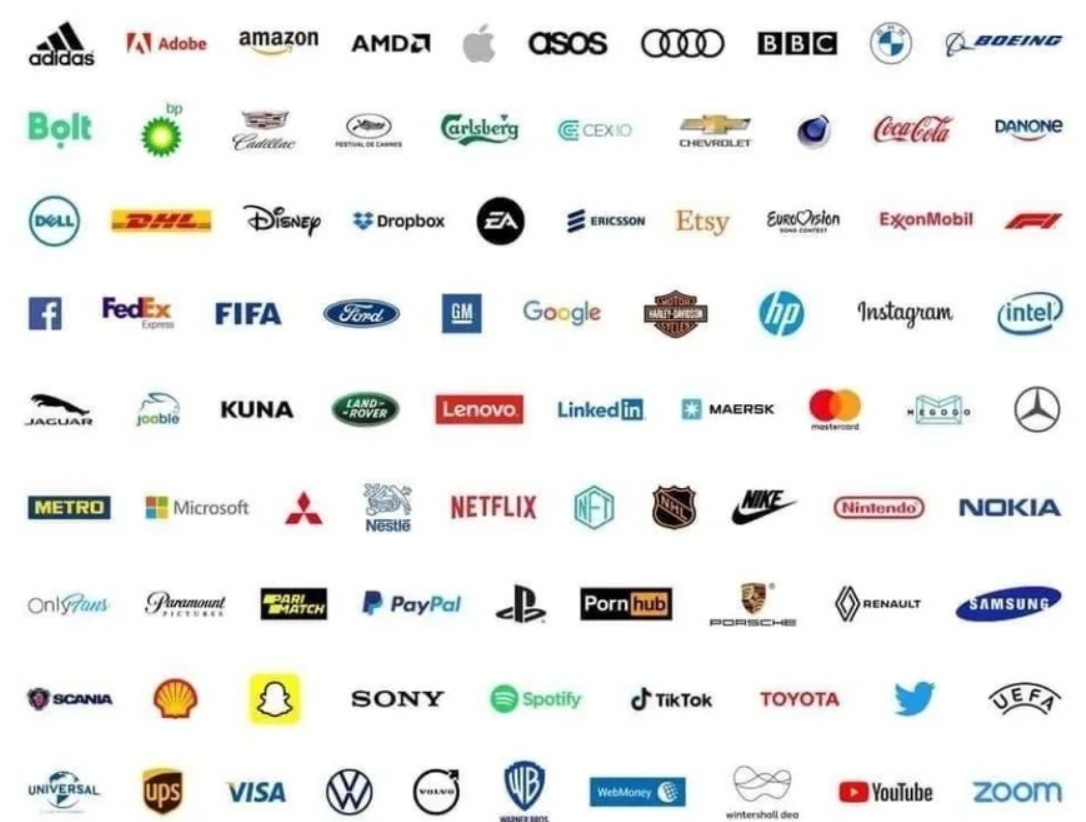A friend of mine, George Cohon of Toronto, took McDonald’s to Russia which was an amazing Cold War triumph. The country was bust and lacked any business, agricultural or marketing expertise, but the first restaurant opened in Moscow’s Pushkin Square in January 1990.
Cohon wrote an enjoyable book in 2012 called “To Russia With Fries” about the challenges and eventual success story, which grew into a chain of 847 outlets and a workforce of 62,000. But this year, after the brutal invasion of Ukraine, the Golden Arches protested and announced it was shuttering all Russian locations in protest and putting the business up for sale. Its departure was as significant as its 1990 entry, and sparked a spontaneous exodus of more than 1,000 foreign corporations from the predatory country.
Russia is now sinking. Russia is in trouble economically, demographically, financially, and militarily. Punitive Western sanctions, as well as brain and capital drains, shred its future.
Its kleptocrats and corrupt oligarchs left a long time ago with their assets, and hide in luxurious boltholes like Dubai. But since the war, others have followed suit. Hundreds of thousands of young educated Russians, and an estimated 15,000 Russian millionaires, have been moving themselves and their assets offshore this year.
All of this adds up to an estimated capital outflow of $150 billion, equivalent to 10% of Russia’s 2021 GDP. Not surprisingly, the country is a mess in macro-economic terms. Russia is in default on its foreign debt, its markets have tanked, banks are bust. Only the ruble rallies, thanks to a central bank prop-up and ongoing energy exports. On the street, consumer confidence vanishes along with Western goods that are no longer on the shelves of grocery and department stores. Inflation is rampant, as are job losses.
And Russia’s own central bank forecasts a fall in GDP of 7.8% this year but Western experts believe its economy will shrink by 15%. (To compare, the U.S. GDP dropped by 0.3% in the 2008 Great Recession and by 2.8% in 2009.) Sanctions against the import of technology such as microchips have caused factories to stop making many consumer products as well as weapons of war.
Automobile production is down by 96.7%, Aeroflot is using spare parts from outdated aircraft to keep its fleet operating (don’t ever fly Aeroflot), and, worst of all, hundreds of billions of dollars’ worth of energy, nuclear, and infrastructure projects have been canceled. As one Russian wag posted: “We now have to live with refrigerators from Belarus”.
Unfortunately, the war is a bonanza for the Kremlin due to Europe’s ongoing addiction and continuing dependency on Russian oil and gas. This has handed Putin the best weapon of all in his war against Ukraine and the West and he cripples Europe by throttling back gas and oil flows in order to cause prices to skyrocket. Russia now produces fewer fossil fuels but makes dramatically more per barrel or cubic foot than before. It has also diversified its customer base to China, India and Africa to try and replace lost sales in Europe. The result is that this year, Russia’s revenue from energy exports have jumped to $320.7 billion from $235.6 billion in 2021 and $143 billion in 2020.

Total energy export revenue in Russia from 2019 to 2021 with a forecast for 2022 (in billion U.S. dollars).
But this windfall won’t last forever. Europe will replace Russian energy in a handful of years and sanctions also spell disaster in the medium and long-term for Russia’s engine of economic growth, its energy sector. For example, before the invasion, a $21-billion mega project in Siberia called Arctic LNG 2 was under way. Equipment was ordered, wells were drilled and an airport built, but now it’s unlikely even a small portion of it will be completed because Western oil giants building it have announced they are permanently leaving Russia.
Likewise, Finland just axed a $7.4-billion nuclear reactor deal with Russia, and Exxon Mobil, Shell and BP have pulled the plug on tens of billions of dollars’ worth of natural gas mega projects in Russia’s Far East and the Arctic. This means bankruptcy and unemployment for thousands of Russian businesses that supplied goods and services for these initiatives.
These oil giants are taking massive write downs for walking away, never to return and leaving behind no entities capable of executing such nation-building master plans. Maybe China would step in but that would prove perilous for Putin because China wants Siberia and the Arctic all to itself.
Putin’s warfare against the world has also accelerated Russia’s demographic decline. Independent newspaper, Moscow Times, reported that five million Russian Citizens have left Russia since Putin took over in the past 20 years. The United Nations estimates that 11 million Russians live outside Russia and indications are that the recent war has sparked as massive exit. Al Jazeera wrote that this year 3.8 million Russians have left the country, according to data from Russia’s Federal Security Service (FSB) published in May.
(But the FSB site referred to has been disabled and recent official estimates are that only a few hundred thousand have left.)
Whatever the total, leaving makes more sense than ever. The war and conscription add to the list of unacceptable conditions that plague the place. There’s also inadequate healthcare, poverty, alcoholism, injustice, inequality, corruption, rotten politics and the absence of economic opportunities for young educated Russians.
This statistic underscores Russia’s deep-seated and permanent challenge: Male lifespans in Russia are 67 years on average compared with Switzerland’s 82 years.It’s ironic that a war waged by Putin to force Ukrainians to become Russians is resulting in Russians leaving Russia in droves. “It brings to mind a comparison with emigration in 1918 [during the Russian Civil War], and the 1990s,” said Inna Pomorina, an economist at Bath Spa University in England in an interview with Al Jazeera. “We left Russia because our salaries were not being paid, so it was difficult to live. Although in the nineties it was mostly for economic reasons, now it seems mostly political. This will have a long-term impact on the economy, as any ‘brain drain’.”
Russia’s stature also shrinks. The number of students learning Russian outside the former Soviet republics has fallen from 20 million to one million. Its cultural icons are being rejected. For instance, the world’s most famous conductor, Valeri Gergiev, a Putin apologist, has been banned from every symphony and opera company in the U.S. and Europe, as has Russian soprano Anna Netrebko. In sports, Russian and Belarusian tennis players were banned from Wimbledon and their hockey teams have been banned from competition indefinitely by the International Ice Hockey Federation. Russia was informed it will not host the world junior hockey championship in 2023 either.

Globally, Russian artists, musicians, books, music, and businesses are being banned or excoriated in protest against Putin’s genocidal massacre in Ukraine.
The world has taken Ukraine’s side, which is why McDonald’s kickstarted an unprecedented exodus from Russia. In response, Putin has ominously said that companies that have left will regret doing so, but that’s all the more reason to leave behind his kleptocracy. Malevolence and a diminishing future is why the world’s fossil-fuel giants mounted a private-sector declaration of war on Russia.

Companies that have left Russia.
“The oil companies acted with such moral outrage that you have to do a triple take,” commented Jeffrey Sonnenfeld, a dean at the Yale School of Management. “Not that they’re mean, nasty people, but you don’t usually see them on the leading edge of social-change movements. They also have such enormous stakes that it wasn’t just perfunctory and flak-driven.”
A small list of the corporations that have quit Russia in the first quarter of 2022
Putin is personally responsible for this carnage, but in June he dismissed the “blitzkrieg” of Western sanctions as “stupid” and claimed they have “failed”. Further, he boasted that sanctions hurt the West and have caused the highest inflation in decades and that Russia will emerge stronger and more self-sufficient than ever. He’s dead wrong on all counts.
The world suffers from Putin-flation and Russia deserves to be punished to put an end to Putin and his evil regime.
Unfortunately, the pain felt in Russia is not yet unbearable. And that is bad news for everyone, especially for Ukraine and the Western alliance.
Diane Francis Newsletter on America and the World
30-day free trial at https://dianefrancis.substack.com/about National Post Editor-at-Large
Atlantic Council in DC Senior Fellow Eurasia Center
Hudson Institute, Kleptocracy Initiative
Canada-US Law Institute, Case University Law School, Cleveland
Republished with the author’s permission.
The views expressd in this article are the author’s and not necessarily those of the Kyiv Post.
